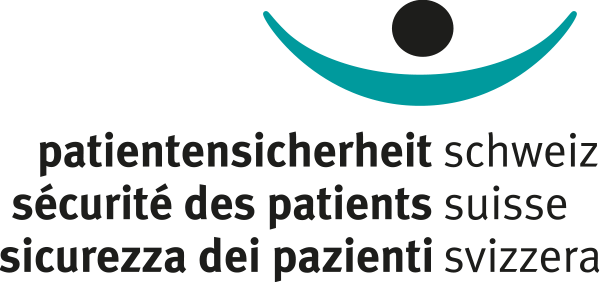
Brain Tumour
Do you have any questions? Benefit from personal advice on second medical opinion and choice of hospital:
+41 41 228 09 94
Brain tumours are made up of cell proliferation in the brain, and can be benign or malignant. Symptoms of brain tumours include, for example, double vision, facial paralysis, sudden insecurity when walking, or epileptic seizures and headaches. Sometimes, there are also behavioural changes (e.g. increased irritability) that can be perceived by relatives. The symptoms are dependent upon the location, size and growth of the brain tumour, but the symptoms mentioned above can also have other causes. However, a medical examination is necessary in any case.
Benign brain tumours can also cause symptoms because the skull limits the space for the brain. On the other hand, a person affected with a brain tumour can be free of symptoms for a long time despite the brain tumour.
Many causes and development mechanisms of brain tumours are not fully understood. However, factors are known that can alter the genetic make-up of the cells and thus increase the risk of a tumour:
-
Unhealthy lifestyle for years: for example, unbalanced diet, tobacco and excessive alcohol consumption, stress, lack of exercise
-
Advanced age: The ageing process favours the development of cancer, as more errors in the natural cell division that can no longer be corrected by cell repair mechanisms develop.
-
Genetic predisposition: an innate change in the hereditary material can increase the risk of cancer.
Your guides:
Your checklist:
Further information:
If a brain tumour is suspected, neurological and imaging examinations are usually performed first. If necessary, a tissue sample by means of a biopsy or further investigation can provide precise information about the type and stage of development of the tumour. This is important so that the treatment and therapy can be determined.
It is also possible that the symptoms do not emanate from a brain tumour, but from brain metastases. Brain metastases are spread from another tumour in the body (for example, the kidney or the prostate).
The choice of treatment depends on several factors: the type, location, size and behaviour of the tumour. The symptoms and the general state of health of the person affected are also taken into account. The therapeutic options are the following:
-
Curative treatment (healing)
-
Symptom-relieving treatment (not healing, palliative)
-
Adjuvant treatment (supportive treatment by means of irradiation, medication or others, after surgical removal of the tumour)
Your guides:
Your checklists:
Further information:
Do you have questions about purchasing medication via a mail order pharmacy?

Medication plan
to print out
(available in German and French)
Whether an operation can be performed depends mainly on the type and stage of the disease. It is known that the best results in the operation and treatment of a disease are achieved in hospitals with a high number of cases.
CONCORDIA has commissioned the institute B,B,S. Economic Consultants in Basel to evaluate the treatments and operations of brain tumours in all Swiss acute care hospitals – independently, neutrally, and according to statistical quality criteria.
The quality of inpatient treatment was assessed, along with the length of stay and the hospital costs.
-
During a personal conversation, we will show you, on the basis of the results, which hospitals throughout Switzerland have excelled over the years in the treatments and operations for brain tumours in terms of quality and efficiency.
-
Use our consulting offer to find out which hospital is most suitable for your treatment.
-
Naturally, you still have the choice of when and where you would like to be treated, in line with your basic and supplementary insurances.
Tumour board: Collective knowledge
A tumour board is a committee that brings together specialists from various medical disciplines to discuss the clinical situation of patients suffering from cancer and to set up an optimal treatment plan.
For the treatment of brain tumours, we recommend a second medical opinion. If you are covered by a hospital insurance at CONCORDIA, a second medical opinion is free of charge if you apply for it via the Lucerne Cantonal Hospital (LUKS).
Even if the brain tumour has been successfully removed, brain injuries can remain. On the one hand, because the tumour has already damaged the brain tissue, and on the other hand, as a result of the operation. Exactly how rehabilitation and aftercare after a tumour treatment or operation in the hospital will look depends on the treatment, the prognosis and your state of health.
Physical recovery and rehabilitation are in the foreground, but the psychological stress must be processed.
These are possible key aspects of aftercare:
-
Outpatient oncological follow-up
-
Accompanying therapies for the treatment of illness and therapy-related consequences and symptoms, such as pain, nausea, grief, altered body image or personality changes
-
Possible rehabilitative measures to maintain or support physical and psychological health
-
If necessary, seek counselling services such as psycho-oncological support, or counselling on financial or professional issues.
-
Have a person in a position of trust by your side who will give you relief, security and support on good and bad days.
-
Living with a chronic illness requires very good self-management in order to be able to successfully master the various challenges in everyday life. concordiaCoach can support you in finding good solutions.
Your guides:
Further information:

Medication plan
to print out
(available in German and French)
Assessment questionnaire
Individual health situation
The Swiss Federal Office of Public Health:
Seasonal flu vaccination
Give us your feedback: What experiences have you had with the CONCORDIA Health Compass? Do you have questions about using it?
What suggestions do you have for us? Or maybe you didn't find what you were looking for?
Call us on +41 41 228 09 94. Or write your message to healthcompass@concordia.ch.
We would be happy to provide further assistance.



